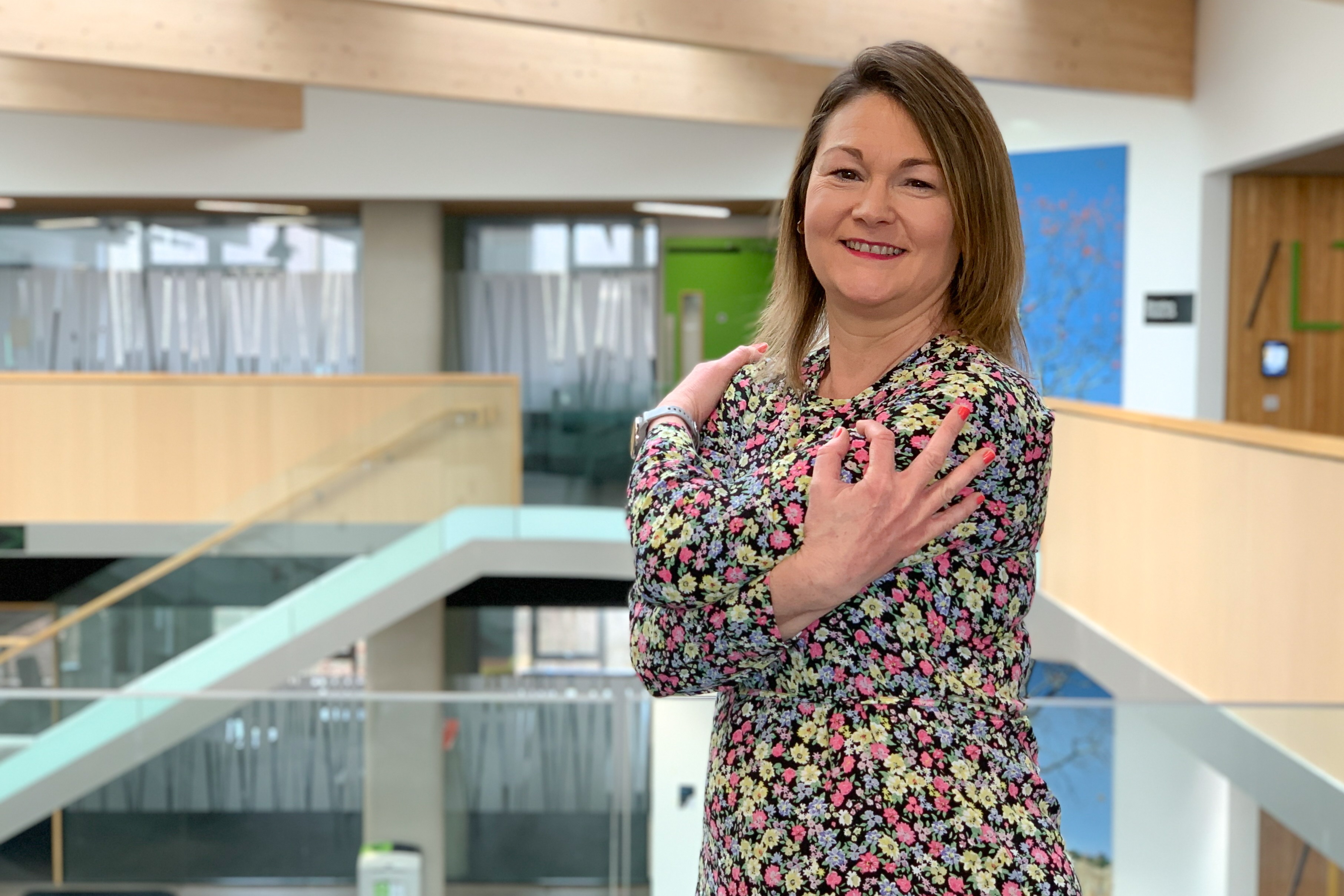Dr Samantha Evans is a lecturer in Human Resources Management and diversity lead for Kent Business School. As an academic, her research centres on inequality in the workplace.
In line with International Women’s Day, we caught up with Dr Evans to find out more about her past, present and future as an academic making positive change for disadvantaged groups.
Where did you start in life and what inspired you as a child?
I grew up in a single parent family on a council estate in Southeast London & didn’t really have any academic inspiration to draw on when I was young. But from a young age I wanted a career & I had supportive teachers – both primary & secondary school who saw my potential and encouraged it.
Did you ever feel on the back foot, as a woman?
Not until I had children. I went to an all-girls grammar school so was somewhat shielded from gender discrimination during my schooling. I felt the same at university – no gender disadvantage.
It wasn’t until I became a mother that I’ve felt on the back foot as a woman. I have found juggling children and my career really challenging.
Did you have strong female influences in your life?
My grandma always worked and I was very close to her so that may have inspired me to work. Really strong female influences later in life came from secondary school teachers and university lecturers.
I am still friends with today with one of my female professors who I went on to work with as a colleague after my PhD. She retired as Pro Vice-Chancellor of a university, yet was a committed mother and I have always aspired to do the same.
What led you to academia?
My love of learning!
What do you love about Human Resources?
The people factor – I love trying to inspire the next generation of human resource professionals to practice ethical and sustainable people management practices in the organisations they work in.
Human resources can have a significant impact on organisations – both good and bad so I want the graduates I’ve taught to make Human Resources work for the good of their organisations and their employees.
Tell us more about your research.
My research focuses on social class inequality i.e. how your social class impacts on your opportunities and outcomes in life. This is a relatively emerging field of diversity, but we do know that employees from a lower social class are less likely to reach senior levels e.g. only 10% of UK employees from working-class backgrounds make it into Britain’s higher managerial, professional or cultural occupations. We call this the ‘class ceiling’.
There is also class pay gap of in many occupations and even when working-class employees break through the class ceiling they earn on average £6400 less per year than their middle and higher-class. Social class inequities are exacerbated by intersectionality, such that women from a working-class background face even more disadvantage.
My own research is looking at the impact of social mobility on employee experience & outcomes & has found that socially mobile individuals have more complex and fraught experiences not only in the workplace, but also in their non-work lives (and navigating between the two) that influence their work behaviours and career outcomes as well as their experiences both in and out of work.
How did becoming a mother impact your thinking and direction as an academic?
Well it certainly slowed down my career progression! I found it harder to engage in the activities that help to drive academic careers forward such as attending conferences, events & other networking opportunities scheduled for outside of the working day because I always had to work within the opening hours of the available childcare.
Tell us about your EDI rep role
As the EDI Lead for KBS, I am responsible for driving forward the development of an inclusive organisational culture and embedding EDI values across the division’s staff and students. This involves working on EDI strategy development and implementation across a range of EDI activities and initiatives including charter mark submissions, such as Athena Swan.
I also Chair the KBS Equality, Diversity and Inclusion Committee, comprising of staff and student members who support this work and lead on the EDI priorities for KBS.
Are things going backwards for women or are we seeing positive change?
It’s a mixed picture. The Covid-19 pandemic has seen a change in gender equality with much evidence that it has set things backwards for women. However, other factors such as the increased focus on flexible working, particularly home-working, hybrid working and the 4-day working week could benefit women going forwards.
However, until we see progression in terms of affordable childcare; greater equality in caring responsibilities between men and women and organisations truly challenging inequality, then progression for women will remain painfully slow.
What do you predict will happen in the near future for women at work?
That women will continue to struggle for equal pay and equality of opportunity at work. For example, the recent government decision to refuse to make menopause a protected characteristic under UK equality legislation is argued to be another backwards step in the equality agenda and shows just how far there is still to go in this work.
What’s your utopia for women, globally?
That women have a fair share of opportunity with the freedom to make choices for themselves without the burden of disadvantage or judgment in the decisions they make.
How do you instil what you believe in your students?
It’s the fundamental basis of education – bringing to light the realities of inequality & lived experiences of those in disadvantaged positions in society is a really powerful message to convey the importance of EDI in everything we do.

